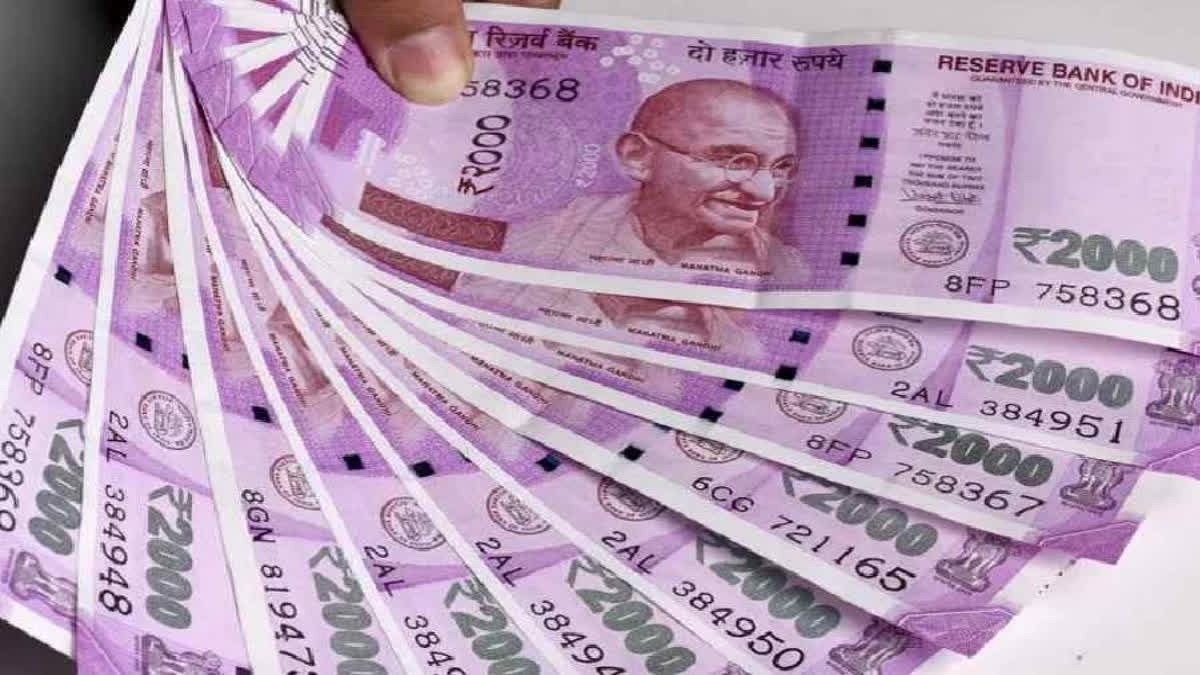Hyderabad: The Reserve Bank’s decision to ban Rs 2,000 bank notes from October this year has surprised many people and reminded them of the dreadful memories of pain and suffering experienced by the people during the note ban announced by Prime Minister Narendra Modi in November 2016.
However, unlike the 2016 note ban, this time the decision to ban the circulation of Rs 2,000 banknotes has been devised and implemented by the Reserve Bank itself, the sole manager of the currency in the country under the law.
The way the decision to discontinue the circulation of Rs 2,000 banknotes has been implemented by the RBI clearly shows the experience gained and lessons learned during the painful period of the 2016 note ban, usually known as demonetization, which hit the unorganized economy adversely.
The establishment of the RBI
During the British Raj, the Imperial Legislative Council enacted the Reserve Bank of India Act of 1934 to regulate the issue of Bank notes and the keeping of reserves with a view to securing monetary stability in the country and operating the currency and credit system of the country to its advantage.
The RBI Act says a bank called the Reserve Bank of India shall be constituted for the purposes of taking over the management of the currency from the Central Government and of carrying on the business of banking in the country as per the provisions of the RBI Law.
Therefore, after the RBI Act came into force on April 1, 1935, and the RBI came into being on the same day, initially the Reserve Bank’s head office was located in Kolkata but in 1937 it was permanently moved to Mumbai. The Mumbai office is the place where the RBI governor sits and policies are formulated.
RBI’s powers over currency management
According to Section 22 of the RBI Act of 1934, the RBI is the sole issuer of currency notes in the country. Section 22 says the Bank shall have the sole right to issue banknotes in India, and may, for a period which shall be fixed by the Central Government on the recommendation of the Central Board of the RBI, issue currency notes of the Government of India supplied to it by the Central Government.
And Section 22 also provides that once the provisions of that chapter come into force, the Central Government will not issue any currency notes as the management and control of the issue of currency and bank notes were transferred from the Central Government to the Reserve Bank of India.
Denominations of notes issued by the RBI
Section 24 of the RBI Act of 1934 deals with the value or denominations of the bank notes issued by the Reserve Bank.
For example, the RBI Act itself provides the denominations that the bank notes shall be of the denominational value to two rupees, five rupees, ten rupees, twenty rupees, fifty rupees, one hundred rupees, five hundred rupees, one thousand rupees, five thousand rupees and ten thousand rupees.
The language and wording of Section 24 of the RBI Act do not specifically mention the RBI shall issue the banknote of Rs 2,000 as was issued by the RBI in the wake of the 2016 demonetization to urgently meet the cash-related needs of the economy.
However, Section 24 also allows the RBI to issue banknotes of any other denominational value, not exceeding ten thousand rupees, as the Central Government may, on the recommendation of the Central Board, specify on this behalf. That is why the RBI was able to issue Rs 2,000 banknotes in 2016 despite the fact that a banknote of Rs 2,000 denominational value has not been specifically mentioned in the RBI Act.
And now the Reserve Bank has decided to discontinue the circulation of Rs 2,000 bank notes from October 2023 but it will remain a valid legal tender till September 30.


